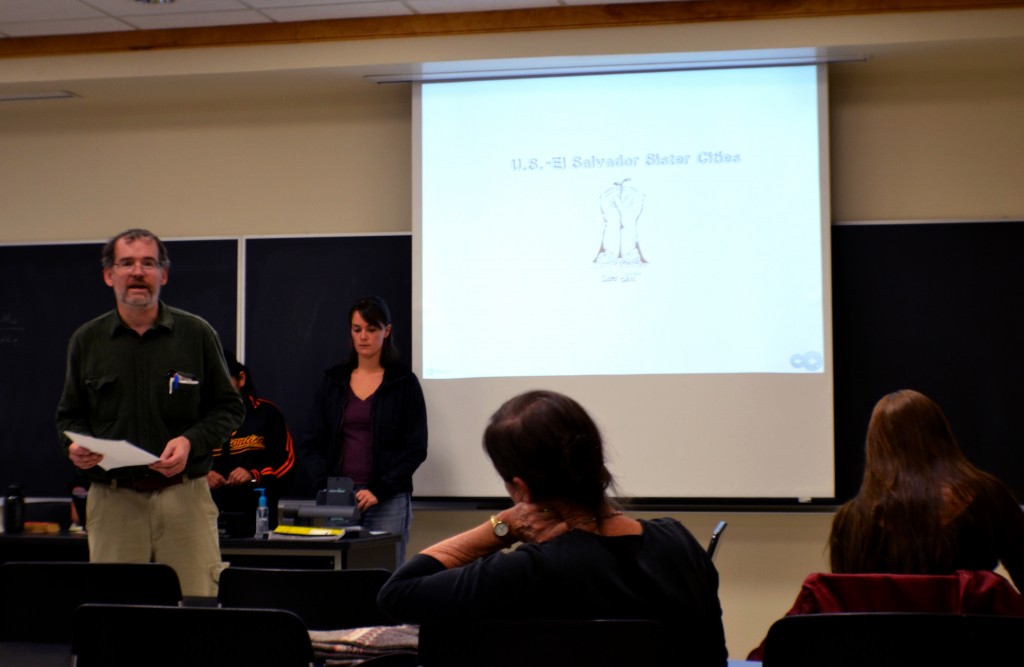
On Thursday, Alexander Early, a coordinator for the U.S.-Salvador Sister Cities Network, and Zulma Hernandez, an organizer for the Association for the Development of El Salvador (CRIPDES), visited Binghamton University during their U.S. tour to build awareness of gold mining in El Salvador.
Dan Driscoll, a member of the local Binghamton Sister City Project, said gold mining in El Salvador exposes corruption in their government.
“What is happening in El Salvador is interesting because you see the influence that wealth has in politics, how power is still oppressive in these countries, and how if the government doesn’t get their way, they will use military action,” Driscoll said.
The U.S.-El Salvador Sister City Project began in 1986 as a grassroots response to violence against Salvadoran communities by the U.S.-supported Salvadoran military during the country’s 12-year civil war.
Today, the project is a grassroots organization of U.S. citizens and residents who have ongoing partnerships with small rural communities in El Salvador. The Sister Cities Project engages in education and raising awareness, strengthening community relationships, human rights and environmental advocacy.
Pete Knuepfer, director of environmental studies at BU, said the event made public the actions of certain mining companies.
“We sponsored this event to basically get people aware of what’s going on — that multi-national mining companies are running ragged with indigenous communities,” Knuepfer said.
There are 23 active mining exploration concessions for gold and silver in El Salvador and 73 pending applications for future mining projects, according to the presenters.
In the region of Cabañas, there have been four anti-mining activists killed. According to Early, it is widely believed that this violence is linked to the Pacific Rim Mining Corporation, whose mining site is located in that area.
Suzanne Geoghegan, member of the local Binghamton Sister City Project, compared the mining problem to hydraulic fracturing in Binghamton.
“The issue of mineral extraction raises the same issues that fracking does, and it is interesting for students to hear how other countries are dealing with corporate interests,” Geoghegan said.
The environmental impacts of gold mining are irreversible damage to the environment due to the use of cyanide, mercury, heavy metals, and the excessive use of water, according to Early. In one hour, a mining company consumes the amount of water that five families use in 20 years.
Due to the health, social and environmental risks that mining causes, the Salvadoran government has stopped issuing permits for mining. In response, North American companies like Pacific Rim Mining Corporation and Commerce Group Incorporated are demanding that the Salvadoran government pay them millions of dollars for refusing them mining permits.
The Midwest Coalition Against Lethal Mining (MCALM) has presented a law to ban mining in El Salvador, and hope that a ban will put an end to the lawsuits.
If El Salvador passes a law banning mining, it would be the first country in the world to ban metallic mineral mining.


